Congratulating
 2022 summer
2022 summer

 2022 summer
2022 summer
Our third annual NSW Health Pathology Awards was one of our most exciting, as more than 200 of us could finally come together in person at Sydney’s Luna Park after two years of COVID-19 disruptions – and in our 10th year as a statewide service.
I know pathology and forensics have been reliably serving our public service for many decades, but these recent years have shown the real value of being one organisation with the ability to draw on the strength of our statewide network while still supporting our local community needs.
So many of our dedicated staff have continued to show great resilience and innovation when faced with the unrelenting challenges of COVID-19, which included managing huge testing volumes, pressure to find new solutions for new problems, and juggling the work-life balance throughout a prolonged disruptive period. All this while also maintaining the other vital pathology and forensic services the community and our customers rely on us for.
We continue to care, connect and pioneer again and again, and I am very proud to lead such an amazing public pathology and forensic service.
This year, the calibre of entrants was so high that our judges had a difficult job narrowing down 80 nominations to just 29 finalists whose expertise is a great representation of the diversity of work that goes on in our organisation.

Congratulations to all of our amazing nominees, finalists and winners.
NSW Health Pathology acknowledges Aboriginal and Torres Strait Islander Peoples of New South Wales and their special place as Traditional Custodians of this land.
Through their sacred cultures and customs, they have nurtured and cared for this land for thousands of years and continue to do so today.
We would like to pay our respects to the Elders past, present and emerging, for they hold the memories, the traditions, the cultures and hopes of Aboriginal and Torres Strait Islander Peoples across the state.
NSW Health Pathology is committed to help closing the unacceptable gap and is implementing a range of strategies through its first Innovate Reconciliation Action Plan

It is such a pleasure to be able to celebrate the expertise and achievements within NSW Health Pathology.
To see the growth of NSW Health Pathology over the years is testament to the resilience, knowledge, professionalism and dedication of you all, including your leadership teams across the state. It is something I know your Chief Executive is deeply proud of and I share that feeling.
As the largest public pathology service in Australia, you’ve always been a vital partner in our health system, and throughout the pandemic you truly demonstrated your expertise and value.
I know too that your forensics service is highly regarded and respected for your contribution to the justice system.
I also want to commend you for the steps you’re taking as an organisation to help us close the unacceptable gap that remains for Aboriginal and Torres Strait Islander people through your Reconciliation Action Plan. This is something close to my heart and I am proud that together we are taking meaningful action.
Your stories show what goes on behind the scenes to keep public health and justice systems as large as ours effective, responsive and caring. And I say behind the scenes as I know much of what you do is out of the spotlight, and I want to acknowledge that and say thank you.
We thank Uncle Michael West of the Metropolitan Local Aboriginal Land Council for his engaging and thoughtful Welcome to Country on the land of the Camaraygal people.

Uncle Michael is an Aboriginal man of the Gamilaroi Nation and a member of the Stolen Generations.
He invited us to imagine life on Sydney Harbour before European settlement. He shared his passion for and connections to his land and reminded us it always was, always will be Aboriginal land.
It’s surreal to accept this award when the country’s still in a heartbreaking flood crisis. I am so incredibly proud to be part of the pathology family. In the heartache of February while we continued to work for our communities, every one of you, our colleagues, were supporting us.
Michelle McPherson, Operations ManagerIn February this year, Lismore and the Northern Rivers region was hit by torrential rain that saw the Wilson River rise two metres above its previous record height. Levee banks broke and large areas of the town went under.
Flood waters lapped at the front step of our Lismore laboratory. Staff sandbagged the doorway and moved equipment to higher ground so testing could continue if the lab flooded.
Houses and businesses were destroyed leaving many people homeless, including some of our NSW Health Pathology colleagues who lost their homes and possessions. Roads were cut leaving other colleagues stranded for extended periods. Nearby towns were isolated preventing specimens reaching our lab.
The town hadn’t even begun to recover when in March, the river broke its banks again, inundating the town and hindering the clean-up and any progress that had been achieved.
Despite the chaos, isolation and disruption to their personal lives, the team again worked tirelessly to ensure undisrupted diagnostic services for our Northern Rivers patients and clinicians.
They were especially grateful for the support and camaraderie of colleagues from our Tweed, Grafton and Coffs Harbour labs. After the February floods, when access to the town was cut and fruit and vegetables were scarce (there was not a single potato to be found in Casino!) our Tweed team sourced food from across the Gold Coast and trucked it in when roads became passable.

It was clear early in the pandemic that we’d have to source rapid COVID-19 PCR diagnostic platforms.
Hospitals needed fast results to care for critically ill patients and control infection; potential outbreaks in vulnerable remote communities, jails and nursing homes would need to be managed.
Faced with a global shortage of reagents for our usual rapid testing platform, potential was spotted in a new contender, Roche’s Cobas Liat analyser.

We put it through its paces and it passed with flying colours delivering results within just 20 minutes.
But how to get 165 Liats in use in a range of settings within just six
months? A crack team of people with diverse skills who hadn’t worked together before were drafted into action.
Soon Liats were up and running in 48 of our laboratories, six rapid testing clinics and five emergency departments, delivering results in real time via our award-winning integrated diagnostic pipeline.
Results from remote rapid testing centres were instantly available to lab teams who confirmed COVID diagnoses and notified public health teams in time to enact containment and other management strategies.
From August 2021 to end of April this year, Liats deployed throughout rural, regional and metropolitan NSW gave more than 311,000 results.
They’re easy enough for health staff with no microbiology testing experience to use, and flexible enough to also use for influenza testing without changing ICT systems or providing extra training. More than 100 of the instruments are still in use, giving 38,000 results a month as the pandemic continues.
It is wonderful to have what we did during that extraordinary time recognised. What we did throughout COVID with the Liats shows how every person in this organisation came together to make something happen.
 Gayle Warnock, POCT Zone Manager, Metropolitan
Gayle Warnock, POCT Zone Manager, Metropolitan
Design, develop and implement a new statewide electronic specimen tracking system that lets us know where every patient specimen is at all times, ensuring they arrive safely, every time?
It’s a big ask but was delivered by our clever akuna team using human-centred design.
As a newly formed statewide service, we inherited a disparate range of specimen management processes and platforms that couldn’t unite to deliver the exceptional performance we aspire to.
Faxes and other paperwork were still being used at some sites to record and communicate the whereabouts and custody of patient specimens. Specimen reception teams were concerned, and courier drivers frustrated. There were also our patients, clinicians and police and justice partners to consider.
What better way to understand the issue and find the best solution than engaging with them, those closest to the problem? Focus groups, workshops and meetings
were held with key stakeholders, forging relationships that lasted from conception to useracceptance testing and a pilot.
Despite the challenges of COVID-19, akuna’s statewide rollout began in October 2021 and is now complete.
By June 2022, akuna was in place at 64 labs including all five FASS sites and the NSW Health Statewide Biobank; in use by 900 trained staff; had tracked 97,000 eskies and packages; moved 495,000 patient samples; and reduced paper-based processes at some sites.

Its capabilities are beyond that available anywhere else in Australia or from off-the-shelf solutions. It’s a win for efficiency, reliability, sustainability and most importantly – confidence in our chain of custody of precious patient samples.
akuna is so much more than the people up on the podium on the night. I’d like to thank the wider akuna program team for their efforts, particularly DevOps which came up with the idea and built what I think is the best tracking system in the world for pathology. Thanks especially to our lab teams who in the middle of a pandemic were enthusiastic and supportive and wanted it to work.
John Enright, Logistics Program ManagerContinuing professional development (CPD) opportunities are critical for our scientific and technical staff, helping them maintain and improve their knowledge, skills and expertise.
However, geographical distribution, business as usual demands, COVID-19 testing and pandemic-related social and professional isolation have made it difficult to prepare and facilitate much needed CPD activities in recent years.
The Scientific & Technical Statewide Education Series was established to overcome these challenges. This statewide education program uses collaborative technology to provide virtual sessions, which have been delivered by more than 100 of our laboratory and clinical discipline experts from over 21 sites and several LHDs, in addition to external presenters.
The program leverages the incredible skills, abilities and passion of our people, breaking down disciplinary, hierarchical, geographical and cultural barriers to provide equal access to CPD for more than 4,000 technicians, scientists, laboratory managers, registrars, pathologists and researchers.
The series has gone from strength to strength, starting as a single discipline program and growing as demand and interest increased. In 2022, more than 100 sessions were scheduled across 9 discipline areas including haematology, chemical pathology, molecular genetics, cytogenetics, mass spectroscopy, anatomical pathology, point of care testing, transfusion and early career research.
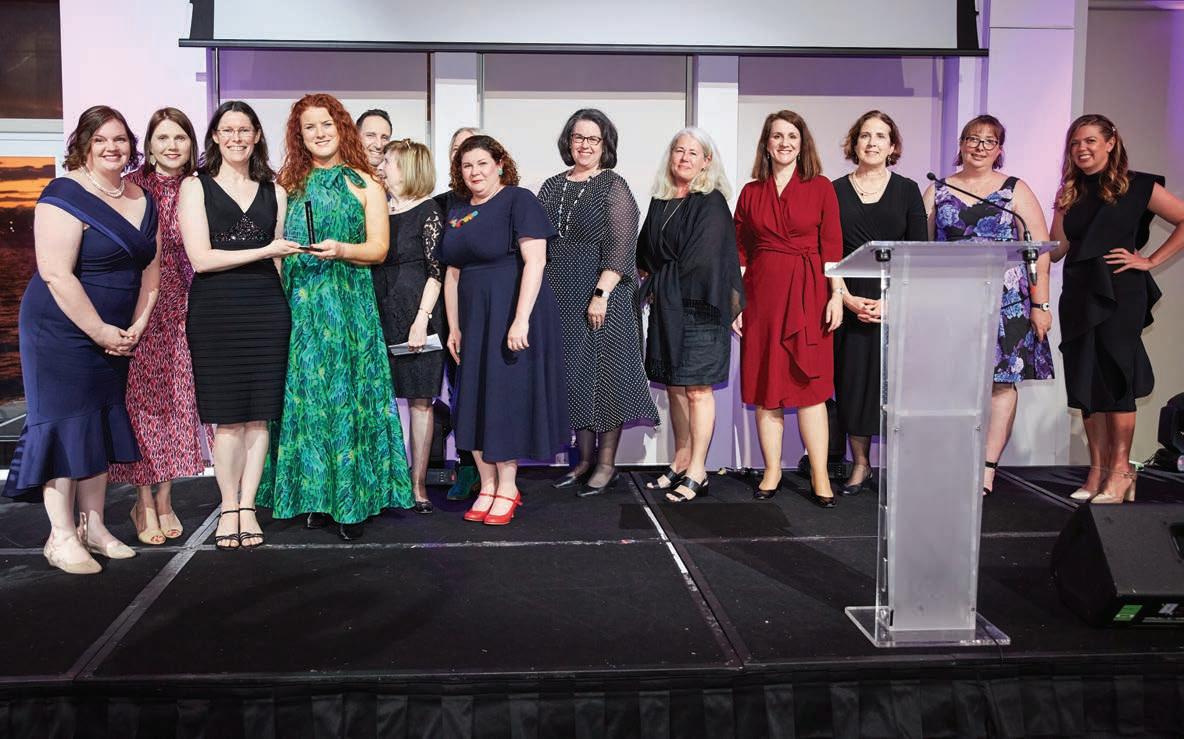
I want to thank the 135-plus uniquely passionate individuals who make this amazing program possible and shout out to all our fans who have logged around 1800 attendances this year alone. Together we are truly creating education without borders.
Leah Simmons, Education Lead –Scientific and Technical Strategy
The team at our Randwick Genomics laboratory has broken new ground in Australian medicine over the past 5 years, establishing a range of critical reproductive genomic services in NSW.

The PreGen project provides diagnostic genomic testing for fetuses with ultrasound anomalies in high-risk pregnancies. Demonstrating a clear genetic cause of disease provides the ability to describe the likely quality of life outcomes in those conditions, which supports couples’ decision-making at a stressful time.
About 3,000 couples have been screened for up to 1,280 different conditions so far through the Reproductive Carrier Screen project. Couples found to be at high risk of having a child with a genetic condition are offered the opportunity for preimplantation genetic screening and IVF so they can have high confidence of having an unaffected child.
These projects play a critical role in reducing the likelihood a couple will deliver a newborn child with a severe genetic disorder and have given many couples reproductive confidence and autonomy to establish their families.
I think the people who will really thank you all are all the families around Australia who now have access to reproductive genomics – and that could not have happened without NSW Health Pathology making this fundamental change.
Our Sustainability Site Champions are a small subset of the Sustainability Champions Working Group, who dedicate their time, energy and passion to promoting environmental sustainability at NSW Health Pathology.

It’s a commitment they take seriously at work and at home, sharing personal projects with colleagues to inspire and motivate them to the cause.
They’ve undertaken local projects at their worksites and built relationships to make NSW Health Pathology visible to other environmental advocates across NSW Health.
Together they have garnered local health district support to establish on-site recycling of plastics, foam, batteries and electrical waste, and have cut disposables out of work processes to reduce landfill-bound waste.
They have built relationships with other sustainability groups and champions across Health; lobbied vendors to make pro-environment changes; and provided leadership in the workplace to promote sustainability.
Our Sustainability Site Champions represent a broad cross section of staff across the State in all roles and capacities. Most have never met or worked together but share a commitment to making sure NSW Health Pathology is an organisation they can feel good about in terms of its environmental efforts and policies.
It is great to be working towards a solution for reducing and recycling laboratory waste and diverting it from landfill. I am looking forward to a time when organisation-wide recycling streams are in all labs and departments and part of our normal working life.
Mary McPhillips, Senior Hospital Scientist, Department of Molecular Medicine, John Hunter Hospital campus, Newcastle





More than 200 people attended our 2022 NSW Health Pathology Awards at Luna Park on 26 October 2022.


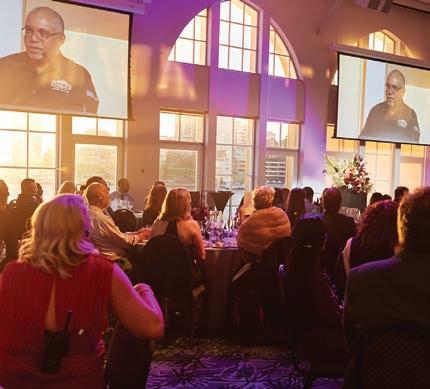


We were delighted to have some of our 2021 award winners celebrate with us on the night and would like to thank those who joined us online.

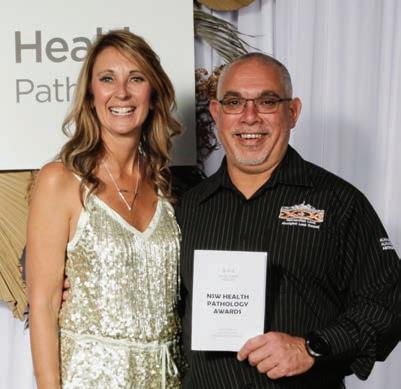
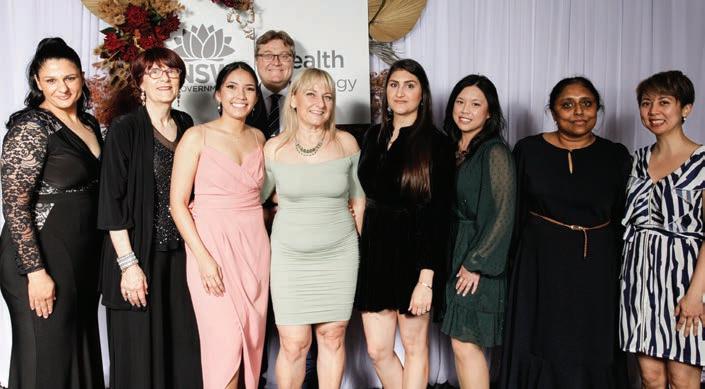


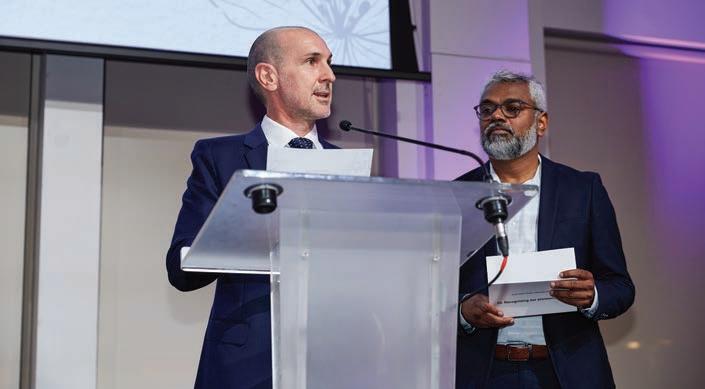




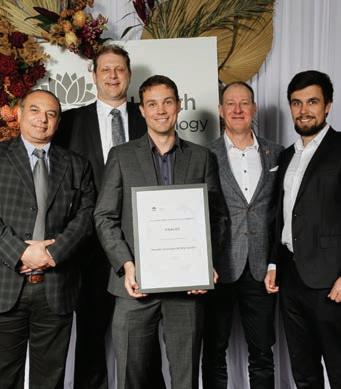
During the height of the COVID-19 outbreak, our Point of Care Testing (PoCT) team worked with Clinical Operations to implement more than 120 Roche Cobas Liat devices in our laboratories to perform fast turnaround COVID-19 testing.
The PoCT team recognised the need to capture, analyse and report data from the Liats. This provided insights into testing trends, positivity rates and invalid rates across local health districts and facilities.
Jacob Birdsall stepped up and led a project to design, build and implement an automated business intelligence system to present this data in an insightful way.
The dashboard Jacob developed has provided a real-time solution to give the NSW Health Pathology executive, PoCT team and laboratory staff valuable insights. This helped to guide decisions about allocating resources such as devices, stock and staffing, and to monitor positivity rates across the state.
This research project was one of the first interactive, real-time solutions for our statewide PoCT service, providing the ability to extract large amounts of data and present it in one easily accessible location. The project clearly demonstrates the importance of prescriptive data analytics and business intelligence solutions and is now being used as a model for the development of future tools.
As much as data analytics may sound boring, I promise you it’s not! It is such a powerful tool in a healthcare setting. There is so much that we can achieve and learn from the data that we produce every day in NSWHP. I feel so privileged to have been supported in this project and to have been recognised for this achievement.
Jacob Birdsall, PoCT Coordinator, NSWHP Royal North Shore
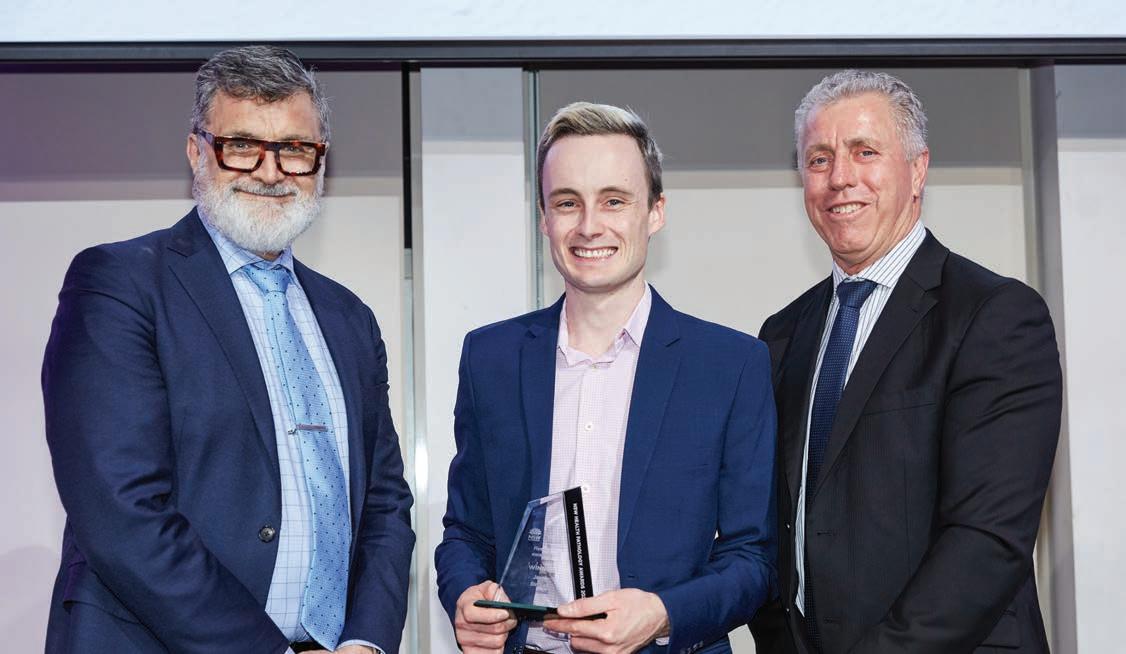
Awards like this are never for just one staff member so I’d like to acknowledge our Point of Care Testing team and our organisation.
 Gayle Warnock, POCT Zone Manager, Metropolitan
Gayle Warnock, POCT Zone Manager, Metropolitan
As a manager of the world’s largest Point of Care Testing network, you might think Gayle Warnock has enough to do.
But colleagues say she’ll always take on more to benefit patient care or help her team.
At the height of the COVID-19 Delta surge she was integral to establishing six rapid testing clinics in Sydney and community testing in Far North West NSW.
She managed training, onsite support and implementation with the sole aim of relieving pressure on lab and hospital staff and ensuring efficient patient results.
It meant remote communities had access to COVID testing and staff in regional areas with no experience in microbiology testing were supported to use rapid testing kits.
Gayle proved an exemplary leader, managing and delegating tasks. She worked extraordinarily long hours yet always checked in on her teams, prioritising their health and mental wellbeing.
She would answer calls at 2am from clinical staff in emergency departments wanting advice.
Gayle is also involved in innovative external projects that ensure disadvantaged communities have better access to healthcare. She helped fit-out the Street Side Medic mobile van with PoCT devices, improving medical care for homeless people. She also oversees PoCT testing for the Pacifika Program which provides church-based diabetes testing and screening for Pacific Island communities.
Gayle is a fierce advocate for her team and is willing to lend a helping hand to anyone. Her cando attitude uplifts us all and she is a champion of workplace diversity and inclusion.
Dr Mahar’s partner Steve McNamara and her sister Julie Nagy, who travelled from Queensland for our awards, accepted the special commendation on her behalf, pictured here with NSWHP Chief Executive, Tracey McCosker PSM.

On 24 March 2022, Dr Annabelle Mahar sadly passed away at the peak of her career at just 52 years of age. We truly were fortunate to have her as a part of NSW Health Pathology. She was a deserved finalist in this year’s RITE Staff Member Award. Those who nominated her said her humility was such that she would not have sought such recognition, but her colleagues believed it was fitting. That very humility is just one of the many reasons I wanted to recognise Annabelle with this special commendation.
Tracey McCosker PSM, Chief ExecutiveDr Annabelle Mahar was one of Australia’s most talented anatomical pathologists with internationally-recognised expertise in bone/sarcoma and pulmonary pathology.

Annabelle was best known for her very high diagnostic acumen, as well as her friendly, modest and selfless disposition. She epitomised our RITE values. Her kind manner, constant moral support and encouragement was valued by all. She is greatly missed.
Annabelle was held in the highest esteem by all who had the privilege of knowing her, including pathology staff and the physicians and surgeons she worked with.
“ S he would regularly call or message me late in the evening with results which we had been anxiously awaiting. She truly recognised that at the other end of every test there was a patient, to whom timely results meant everything. ”
Professor Michael Boyer, medical oncologist and Chief Clinical Officer of Chris O’Brien Lifehouse
“ The smile, her joyous personality, the delightfully melodic ‘ABC’ voice that totally reassured you. However, what I will always remember is Annabelle’s integrity in reporting . . . (that) benefitted greatly both the clinician and the patient. ”
Professor Brian McCaughan, cardiothoracic surgeon RPAH
“ H er kind nature (she never spoke ill of anybody no matter how challenging the situation), inspired us to treat each other with the same consideration. Her thankfulness reminded us that even the most menial of jobs was important. ”
M s Carlie Wiersma, Laboratory Supervisor, Tissue Pathology RPAH
Dr Peter Newton is a problem solver, people person and team player.

He’s hands on, picking up swabs from a nursing home during a COVID-19 outbreak to ensure one less job for our busy couriers and central specimen reception staff.
He’s resourceful and quick to respond, improving workplace culture, which has inspired others to be more innovative and collaborative.
His communication and relationship-building skills are exemplary, boosting morale within our teams and goodwill with Local Health District partners.
Dr Newton monitors turnaround times and is always looking for new ways to improve laboratory efficiency.
He uses his initiative and extensive experience and knowledge to change workflows and rosters to improve lab processes and customer service. In doing so, he’s credited with delivering a seamless experience for patients, clinicians, staff and other stakeholders.
There is no wrong time to approach him and no wrong question to ask. His positivity, patience and work ethic are admired and respected. He brings so much to the table yet asks for so little in return.
This award really belongs to the amazing team that I’ve been blessed to work with for the last few years. It really should go to all of our lab staff for their resilience through the impact of the bushfires, the COVID-19 pandemic, the floods and a really difficult respiratory virus season.
Dr Peter Newton, Clinical Director Microbiology and Local Pathology Director, NSWHP Illawarra/Shoalhaven
referred to these centres and results could be delayed while samples were transported and processed.
The ‘inception of regional molecular pathology’ project has brought this diagnostic capability closer to the patient and faster turnaround times have meant local clinicians can triage patients more effectively and appropriately through their treatment pathway.
Through this project, testing for methicillin-resistant staphylococcus aureus (MRSA), Faecal Bacterial Pathogens, Clostridium Difficile and Group B Streptococcal is now available at Wagga Wagga, Dubbo and South East Regional Hospital – Bega. This change has been extremely well received by clinical staff, particularly Infection Control clinicians.
Turnaround times have shown dramatic improvements. MRSA detection dropped from 49 hours for on-site culture to 4 hours; Faecal Pathogens detection decreased from 60 hours to 11 hours.

In addition, these molecular platforms were subsequently applied to COVID-19 testing and have since completed more than 300,000 tests across the three regional sites. The technology has been so successful that it is now deployed across a further 8 regional sites.
The move to make molecular techniques more accessible has created greater equity in patient diagnostic services for regional areas. The improvements in turnaround times have had a massive impact for clinical decision-making and improved patient pathways.
The project also provided a great opportunity for ICPMR-Westmead Microbiology and the 3 regional hub groups to work together to achieve better outcomes for patients.
It’s an honour and a big responsibility to choose the winner of our annual Chief Executive Award. This award recognises and celebrates a truly outstanding contribution by a team or individual to the success and strategic priorities of NSW Health Pathology. The winner must go above and beyond to inspire us and exemplify all that is great about our organisation. And this winner certainly does just that.
Tracey McCosker PSM, Chief Executive Molecular techniques have traditionally been the remit of specialised departments within metropolitan tertiary referral laboratories. Consequently, test requests have beenIt’s an honour to accept this award on behalf of the regional laboratories that helped develop this service. We introduced this concept primarily for infectious diseases, then came COVID, and to quote The Daily Advertiser ‘With some strategic lucky planning on behalf of NSWHP, we already had the instrumentation here at Wagga’. I’d like to think it was a little more than luck, and that this award reflects the vision, forethought and hard work that has gone into breaking boundaries never before seen in NSW.
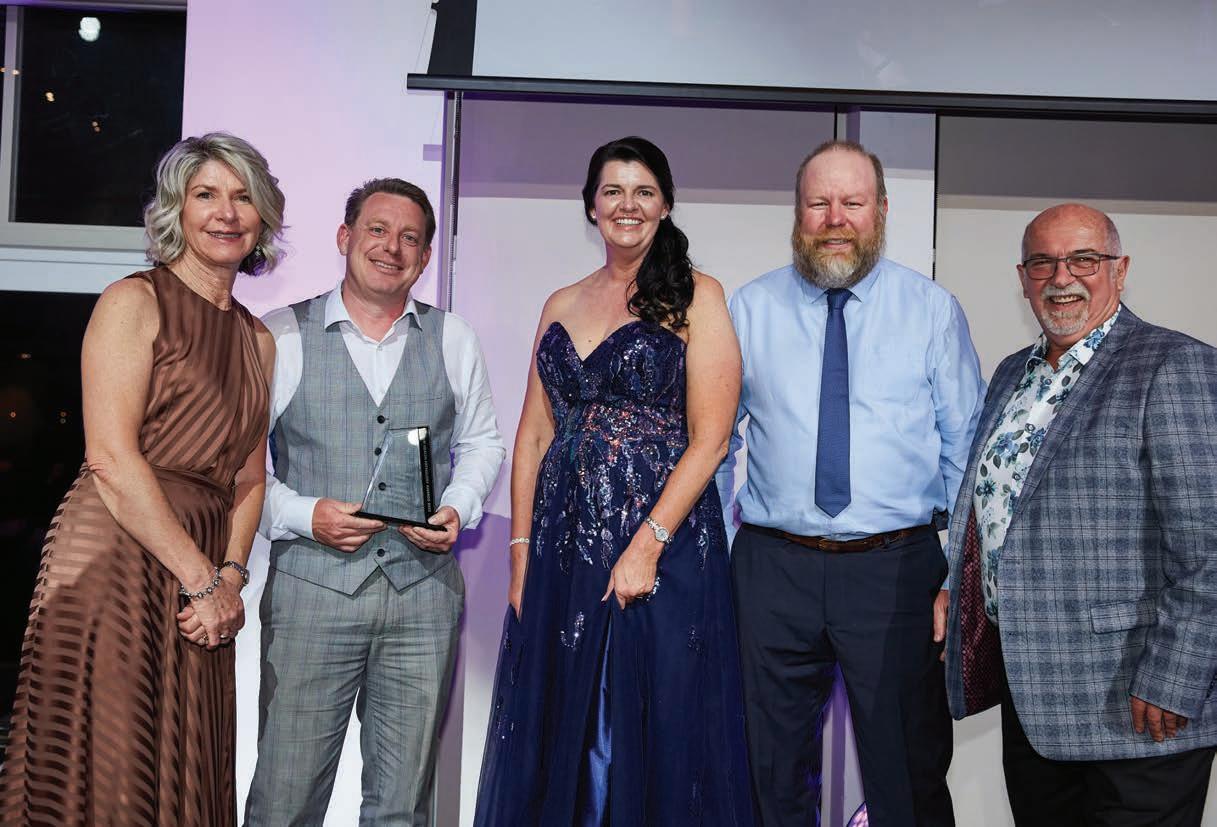 Neil Catlett, Operations Director, Regional and Rural
Neil Catlett, Operations Director, Regional and Rural


 Minister for Women, Minister for Regional Health, and Minister for Mental Health
Minister for Women, Minister for Regional Health, and Minister for Mental Health
The past few years have certainly been like none that we’ve ever experienced before. But through the drought, the fires, the floods – and let’s throw in a global pandemic – you have continued to deliver and contribute to our health and justice systems. A phenomenal response to every new challenge that has come your way.
I know it hasn’t been easy, yet through it all you have continued to be the very picture of absolute professionalism, keeping pace with the shifting landscape of the pandemic while maintaining exceptional, vital services and ultimately, excellent performance.
Thank you for being there for the people and the community of NSW as a trusted provider of pathology and forensic services, and a really valued partner to our local health districts, our local hospitals and health and justice services across NSW.
What makes these awards so special is that they shine a light on all corners of what you do each and every day. They ensure that the many people and the projects that make NSW Health Pathology so great are seen, and most of all, are so very much appreciated.
It’s an apt showcase for your RITE values of Respect, Integrity, Teamwork and Excellence and this is really clear in the 29 finalists and their work. The teams and projects may be diverse, but they have one thing in common – determination to make a difference, to do it better and to persist against all odds.

Minister for Health NSW Health Pathology has performed above and beyond anything that I could have expected. I want to thank each and every one of you for the work you have done particularly during the last very challenging two-and-a-half years of COVID.
Pathology of course starts pre-conception and even post our passing. It underpins absolutely every decision that individual clinicians make for patients but also the decisions our public health physicians make in a big situation such as the COVID pandemic.
Every time Dr Chant needed an answer, every time I needed an answer as your health minister, I knew I could rely on NSW Health Pathology.
It got tough there, very tough. We saw the numbers go through the roof in terms of work load and as we saw the various stages of the virus there was a greater and greater expectation on each and every one of you and every section of NSWHP. But you rose to it.
I want to say to you a big thank you to the entire NSWHP family. You are valued and appreciated by me as your health minister, you are valued and appreciated by the Premier and, I have to say to you, that the entire health system rests on your capacity to do your job.
Enjoy this celebration of the professional expertise that you all display.
NSW Health Pathology sincerely thanks our event partners:

• U ncle Michael West – Metropolitan Local Aboriginal Land Council
• Luna Park Venues
• B ig Bang Events
• Microhire
• Divine Events Styling
• G rant Smith Photography
• B aker Boys Band